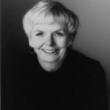Breathing lessons: a novel
Description
More Details
9780307761583
9781705016107
Excerpt
Similar Titles From NoveList
Similar Authors From NoveList
Published Reviews
Booklist Review
A lustrous novel about a middle-aged couple who travel from their home in Baltimore to a friend's funeral in Pennsylvania. The expedition precipitates an introspective journey into two people's individual and collective pasts and presents and futures. Tyler, as always, surveys contemporary middle-class American life beautifully. [BKL Jl 88 Upfront]
Publisher's Weekly Review
In perhaps her most mainstream, accessible novel so far, Tyler spins a tale of marriage and middle-class lives, in an age when social standards and life expectations have gone askew. While she remains a brilliant observer of human nature, there is a subtle change here in Tyler's focus. Where before her protagonists were eccentric, sometimes slightly fantastical characters who came at the end to a sense of peace, if not happiness, Maggie Moran and her husband Ira are average, unexceptional, even somewhat drab; and outside of some small epiphanies, little is changed between them at the story's close. It's this very realism that makes the story so effective and moving. Taking place on one summer day, when Maggie and Ira drive from Baltimore to Pennsylvania to a funeral, with an accidental detour involving an old black man they pass on the road and a side trip to see their former daughter-in-law and their seven-year-old grandchild, the novel reveals the basic incompatibility of their 28-year marriage and the love that binds them together nonetheless. This is another typical Tyler union of opposites: Maggie is impetuous, scatterbrained, klutzy, accident prone and garrulous; Ira is self-contained, precise, dignified, aloof with, however, an irritating (or endearing ) habit of whistling tunes that betray his inner thoughts. Both feel that their children are strangers, that the generations are ``sliding downhill,'' and that somehow they have gone wrong in a society whose values they no longer recognize. With irresistibly funny passages you want to read out loud and poignant insights that illuminate the serious business of sharing lives in an unsettling world, this is Tyler's best novel yet. 175,000 first printing ; BOMC main selection; Franklin Library signed first edition. (September) (c) Copyright PWxyz, LLC. All rights reserved
Library Journal Review
Every reader knows a couple like the Morans. Maggie is a compassionate flibbertigibbet whose best intentions always backfire. Dour and sensible Ira, ``born competent,'' Maggie thinks, ``should have married Ann Landers.'' As they drive inexorably (with a few detours) toward the most comical funeral in recent fiction, Ira ponders his wasted life and the traffic. Maggie, meanwhile, is hatching a plot she thinks could reunite their son with his long-estrangeed wife and child, based on the evidence she has fabricated. Tyler's most entertaining novel yet, a love story in praise of marriage; essential for all fiction collections. Maurice Taylor, Brunswick Cty. Lib., Southport, N.C. (c) Copyright 2010. Library Journals LLC, a wholly owned subsidiary of Media Source, Inc. No redistribution permitted.
Kirkus Book Review
In Tyler's latest testing of the strangulating tugs and miraculous stretch of familial and marital ties, a middle-aged Baltimore couple (inexplicably linked, like so many of Tyler's lovers) take a one-day's detour-clogged trip to a funeral. It's a circuit of comic bumps and heartbreaking plunges that takes them home again to dwindling hope and options, but also to the certainty of love. Maggie Moran, 48, a nursing-home aide (although years ago, her purse-lipped mother had demanded college), was certainly a ""klutz."" Everyone, including Maggie's ""closed-in, isolate"" husband Ira, thought so. Maggie had a ""knobby, fumbling way of progressing through life"" feeling ""as if the world were the tiniest bit out of focus. . .and if she made the smallest adjustment everything would settle perfectly into place."" Maggie had indeed ""adjusted"" the focus of young Fiona, pregnant by Maggie and Ira's failure-bound son Jesse, at the very door of the abortion clinic (surrounded by amateur picketers). Through some hardworking, warmhearted lying, Maggie had forged Jesse and Fiona's marriage; and Maggie's ""breathing lessons,"" coaching Fiona in pregnancy, had as much control over her granddaughter's birth as all Maggie's efforts to prevent the break-up of a young marriage with no connective tissue. Now Maggie is bent on retrieving Fiona and granddaughter back to Jesse--another Moran who's ""thrown away his future,"" like Ira, who had dreams of being a doctor, but was hobbled by his own family, whom he loved and hated. (Could it be, however, in the words of a splintery geezer, netted by Maggie on the highway, that ""what you throw away is all that really counts""?) Before the visit to Fiona, there's the funeral, and middle-aged classmates watch silent movies of their young selves. The camera had recorded Maggie and Ira as ""ordinary""--in the way a sea shell marks genus but not the undulations of existence. Once home, Maggie's carousel of hopes stops, and she cries out: ""What are we two going to live for, all the rest of our lives?"" But Ira, wiser, shrewder, offers and welcomes love. A seriocomic journey in which, as always, underlying the character-rooted, richly comic turns, is Tyler's affectionate empathy for those who detour--and ""practice life"" to ""get it right. Copyright ©Kirkus Reviews, used with permission.
Library Journal Reviews
Every reader knows a couple like the Morans. Maggie is a compassionate flibbertigibbet whose best intentions always backfire. Dour and sensible Ira, ``born competent,'' Maggie thinks, ``should have married Ann Landers.'' As they drive inexorably (with a few detours) toward the most comical funeral in recent fiction, Ira ponders his wasted life and the traffic. Maggie, meanwhile, is hatching a plot she thinks could reunite their son with his long-estrangeed wife and child, based on the evidence she has fabricated. Tyler's most entertaining novel yet, a love story in praise of marriage; essential for all fiction collections. Maurice Taylor, Brunswick Cty. Lib., Southport, N.C. Copyright 1988 Cahners Business Information.
Publishers Weekly Reviews
In perhaps her most mainstream, accessible novel so far, Tyler spins a tale of marriage and middle-class lives, in an age when social standards and life expectations have gone askew. While she remains a brilliant observer of human nature, there is a subtle change here in Tyler's focus. Where before her protagonists were eccentric, sometimes slightly fantastical characters who came at the end to a sense of peace, if not happiness, Maggie Moran and her husband Ira are average, unexceptional, even somewhat drab; and outside of some small epiphanies, little is changed between them at the story's close. It's this very realism that makes the story so effective and moving. Taking place on one summer day, when Maggie and Ira drive from Baltimore to Pennsylvania to a funeral, with an accidental detour involving an old black man they pass on the road and a side trip to see their former daughter-in-law and their seven-year-old grandchild, the novel reveals the basic incompatibility of their 28-year marriage and the love that binds them together nonetheless. This is another typical Tyler union of opposites: Maggie is impetuous, scatterbrained, klutzy, accident prone and garrulous; Ira is self-contained, precise, dignified, aloof with, however, an irritating (or endearing ) habit of whistling tunes that betray his inner thoughts. Both feel that their children are strangers, that the generations are ``sliding downhill,'' and that somehow they have gone wrong in a society whose values they no longer recognize. With irresistibly funny passages you want to read out loud and poignant insights that illuminate the serious business of sharing lives in an unsettling world, this is Tyler's best novel yet. 175,000 first printing ; BOMC main selection; Franklin Library signed first edition. (September) Copyright 1988 Cahners Business Information.




































